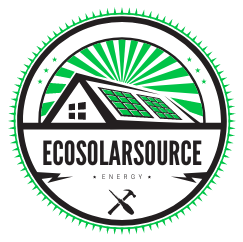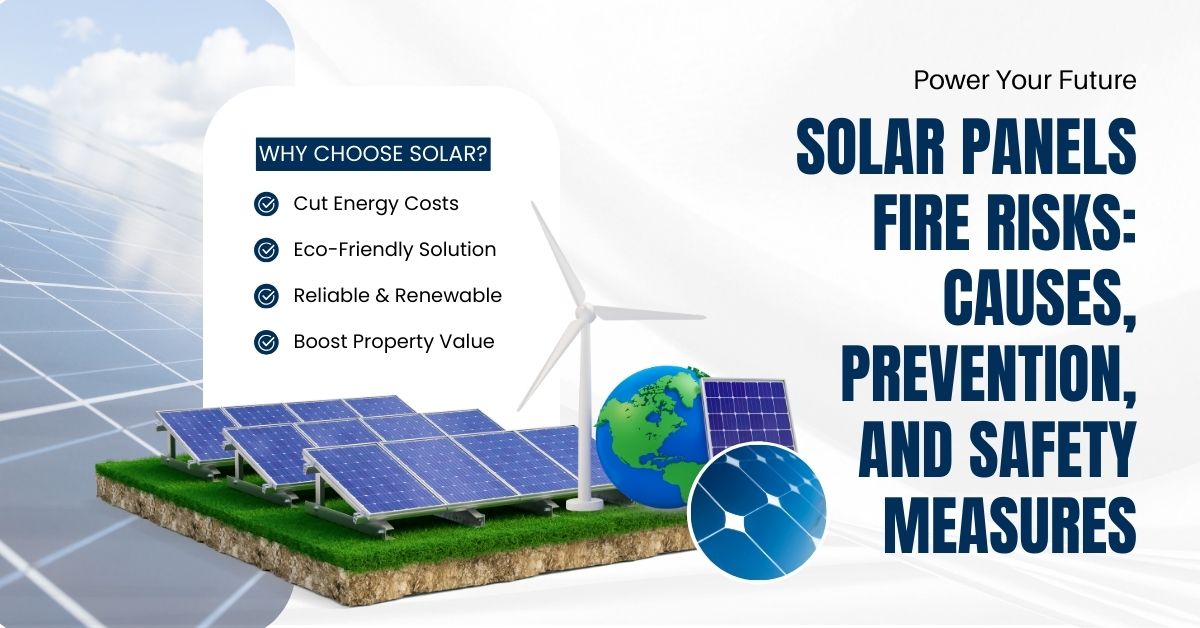Solar Panels Fire Risks: Causes, Prevention, and Safety Measures
Know the details about the Solar Panels Fire Risks: Causes, Prevention, and Safety Measures, Solar panels have become a popular and sustainable energy solution, but they carry some fire risks that are essential to understand. This article explores the causes of fires associated with solar panels, from electrical faults and component failures to improper installations and environmental factors.
It also provides practical prevention strategies, including tips on quality installation, regular maintenance, and adherence to safety standards. Readers will gain insight into critical safety measures, such as choosing certified equipment, installing safety switches, and working with qualified professionals to mitigate fire risks. Perfect for homeowners, business owners, and anyone involved in solar panel installation, this guide ensures a safe, reliable experience with solar energy systems.
Table of Contents
Solar Panels Fire Risks: Causes, Prevention, and Safety Measures
The adoption of solar energy is at an all-time high, thanks to its eco-friendly advantages, cost savings, and contribution to reducing greenhouse gas emissions. However, like any electrical system, solar panels come with their own set of risks, including the possibility of fire. While the instances of solar panel fires are rare, they can have significant consequences when they do occur. This post dives into the potential fire risks associated with solar panels, the causes of these fires, and the best practices for prevention and safety.
Understanding Solar Panel Systems and Fire Risk
A solar panel system, also known as a photovoltaic (PV) system, typically includes several interconnected components: the solar panels, inverter, mounting structures, wiring, and sometimes a battery storage unit. The system converts sunlight into electricity, which can then be used in homes, businesses, and utility grids. While the technology is safe when installed and maintained correctly, fire hazards can arise due to faulty installations, equipment failure, and other factors.
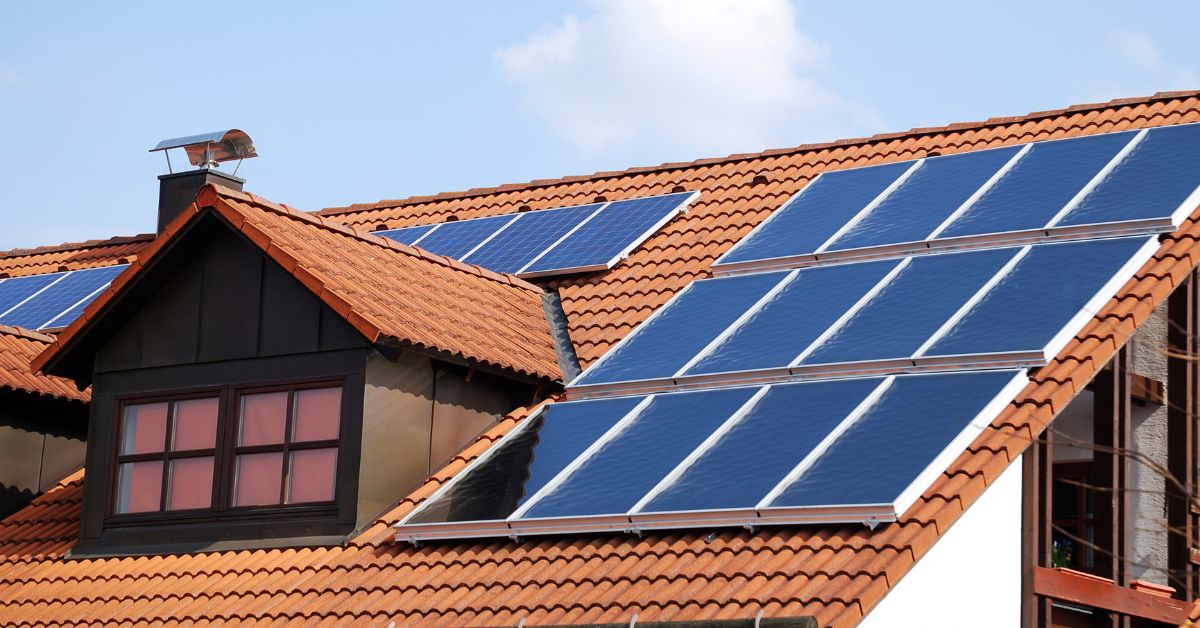
Section 1: Common Causes of Fire in Solar Panel Systems
Solar panel systems are complex electrical setups with various components, each with potential vulnerabilities. Some of the common causes of fires in solar PV systems include:
1. Faulty Installation
Improper installation is one of the leading causes of solar panel fires. When systems are not installed according to safety standards, it increases the risk of overheating, short circuits, and other malfunctions.
- Loose Wiring: Loose or poorly connected wiring can create sparks, which may ignite surrounding materials. Ensuring that each wire connection is secure and protected is crucial.
- Incorrect Inverter Setup: Inverters are responsible for converting DC power from solar panels to AC power for use in homes and businesses. A poorly installed or incompatible inverter can lead to malfunctions, overheating, and fire.
- Deficient Cable Management: Proper cable management prevents electrical arcs and other malfunctions. Cables should be appropriately routed, shielded, and protected to prevent wear and tear or exposure to elements.
2. Equipment Malfunction and Manufacturing Defects
Not all components of a solar system are created equal, and in rare cases, defective parts can lead to fire risks. Equipment malfunctions or manufacturing defects in panels, inverters, connectors, or cables can lead to system failures.
- Hot Spots on Panels: When part of a solar panel becomes shaded or damaged, it can cause an uneven distribution of electrical current. This phenomenon, known as a hot spot, can lead to overheating and, in some cases, a fire.
- Defective Panels: Poor quality or faulty solar panels may contain hidden defects that, under stress (such as extreme heat or prolonged sunlight), can create conditions conducive to a fire.
3. Electrical Arcs and Ground Faults
Electrical arcing occurs when there is a gap in the electrical current, causing sparks to jump between two conductive parts. These arcs can reach extremely high temperatures and ignite nearby materials.
- Ground Faults: Ground faults happen when a live wire touches the ground or another conductive surface. In solar systems, ground faults can result in arcing and subsequent fires if not detected and mitigated immediately.
- Damaged Cables and Connectors: Over time, weather exposure, animals, or poor maintenance can damage cables and connectors, creating an environment where electrical arcing can occur.
4. Weather-Related Factors
Environmental conditions, such as extreme heat, storms, or lightning, can increase fire risks.
- Overheating: Excessive heat from high temperatures can cause components to overheat, particularly if the system lacks proper ventilation.
- Lightning Strikes: Solar panels are generally installed on rooftops, making them susceptible to lightning strikes, which can lead to a fire if the system is not properly grounded.
Section 2: Solar Panel Fire Prevention Measures
Preventing solar panel fires begins with addressing potential vulnerabilities within the system through proper installation, high-quality equipment, and routine maintenance. Here are some effective prevention strategies:
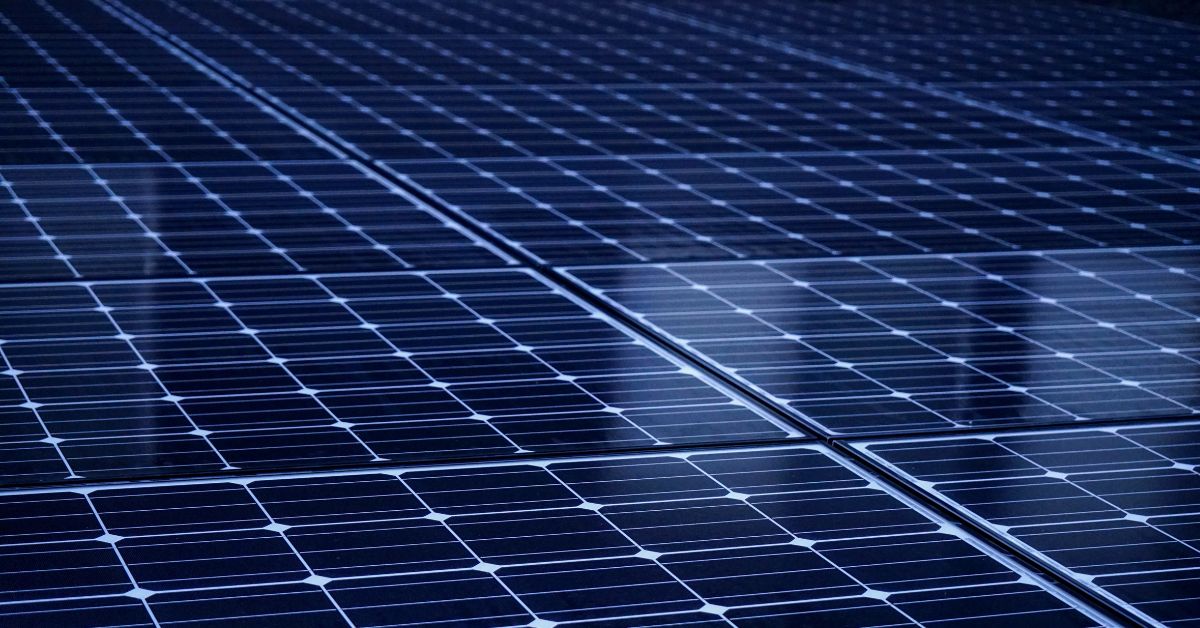
1. Use Quality Components and Reputable Installers
The importance of using high-quality equipment and hiring certified professionals for installation cannot be overstated.
- Certified Installers: Hiring an installer certified by a reputable body, such as the North American Board of Certified Energy Practitioners (NABCEP), ensures the installation meets safety standards.
- Reputable Brands: Investing in solar panels and equipment from trusted manufacturers reduces the chances of defects and malfunctions.
2. Implement Fire-Resistant and Properly Rated Cables and Components
Fire-resistant cables and components reduce the likelihood of a fire spreading through the system.
- Fire-Rated Wiring: Fire-rated cables are designed to withstand high temperatures and prevent electrical arcs.
- Protection Against Weather: Using protective coverings and UV-resistant materials can extend the lifespan of components and reduce wear.
3. Ensure Proper Ventilation and Cooling
Adequate airflow and cooling are necessary to prevent overheating in a PV system.
- Avoid Shaded or Poorly Ventilated Areas: Installing panels where they receive consistent sunlight and airflow helps to avoid overheating and hot spots.
- Heat Dissipation Mechanisms: Ensuring that panels and inverters are mounted in a way that allows for heat dissipation can help avoid the risk of fire.
4. Invest in Reliable Ground Fault Detection
Ground fault detection equipment is essential in identifying and mitigating ground faults before they lead to fires.
- Rapid Shutdown Systems: Some solar installations are now required to include rapid shutdown systems that automatically cut power during a ground fault, thereby preventing further damage.
- Arc-Fault Circuit Interrupters (AFCIs): AFCIs detect electrical arcs and shut down the system if an arc is detected.
5. Regular Maintenance and Inspections
Routine maintenance and inspections by qualified professionals help identify potential issues before they become hazardous.
- Annual Checkups: Scheduling regular maintenance, at least once a year, allows technicians to inspect wiring, connections, and the general health of the system.
- Cleaning Panels: Keeping panels free from dust, debris, and other contaminants can improve efficiency and prevent overheating.
Section 3: Safety Measures for Solar Panel Fire Risk Mitigation
In the event of a fire or a potential fire hazard, quick action and having the right safety systems in place are essential.
1. Install Fire Suppression Systems
Fire suppression systems, especially on commercial properties, can help control and extinguish fires before they spread.
- Sprinkler Systems: Integrating sprinkler systems with a solar panel installation, particularly for large arrays, can help to prevent a fire from spreading.
- Fire-Retardant Coatings: Applying fire-retardant coatings to the solar panels or surrounding structures can slow the spread of flames.
2. Implement Emergency Shutdown Mechanisms
Having an emergency shutdown mechanism is crucial for first responders and property owners to safely shut off power in the event of a fire.
- Dedicated Isolation Switch: A dedicated switch near the inverter allows the power to be completely disconnected from the grid in case of a fire.
- Smart Systems: Some advanced PV systems come with smart controls that can automatically disconnect the system in case of a fault or overheating.
3. Collaborate with Fire Departments and Emergency Services
In many areas, fire departments are now trained to respond to solar panel fires. Coordination with local emergency services can improve safety.
- Solar System Blueprints: Sharing blueprints of the solar installation with local fire departments allows them to respond more effectively.
- Fire Safety Labels: Clearly labeling the solar panel system and its components can help emergency personnel identify where to disconnect power safely.
4. Utilize Monitoring Systems
Monitoring systems that detect changes in voltage, current, or temperature can help detect issues before they escalate.
- Real-Time Monitoring: Many solar installations now come with real-time monitoring systems that alert homeowners or technicians if unusual activity is detected.
- Temperature and Voltage Sensors: Sensors that monitor temperature and voltage fluctuations can help detect overheating or ground faults, reducing fire risk.
Section 4: What to Do if a Fire Breaks Out in a Solar Panel System
In case of a fire in a solar PV system, following a series of safety protocols can minimize damage and protect individuals involved.
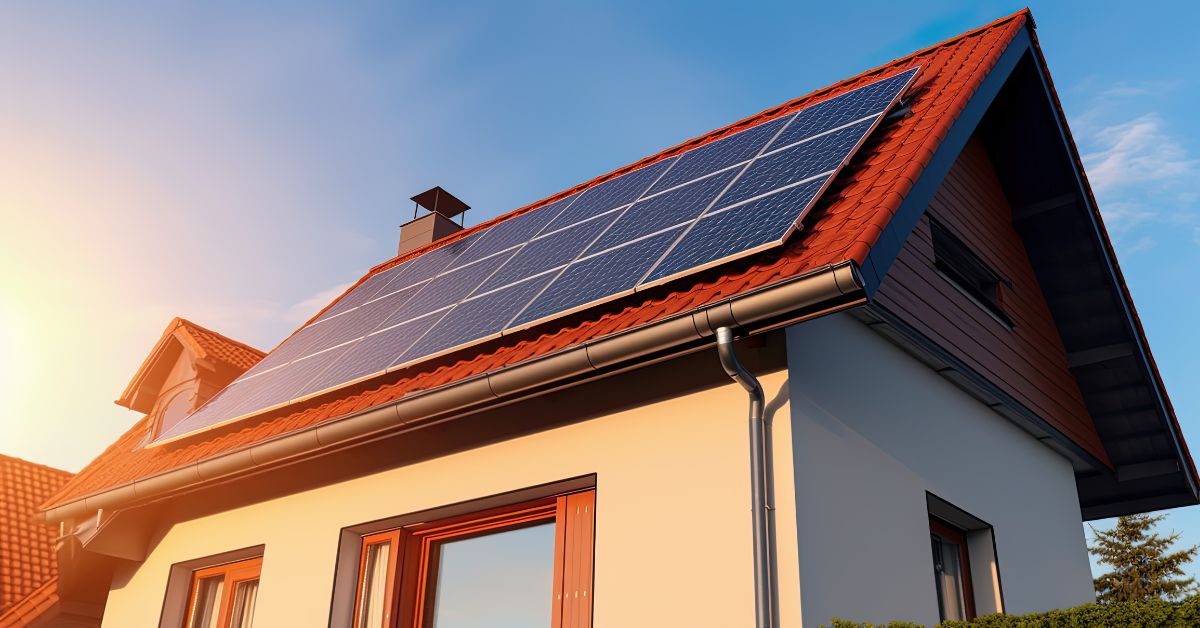
1. Evacuate the Area
Safety is the top priority. Ensure that everyone in the vicinity is evacuated and at a safe distance.
2. Contact Emergency Services Immediately
Call local emergency services to respond to the fire. Mention that the fire involves a solar panel system so that responders are prepared.
3. Shut Down the System if Safe
If it is safe to do so, shut down the solar panel system. Use the dedicated isolation switch or follow the procedures outlined in your emergency response plan.
4. Avoid Water Contact with Electrical Components
Directing water on electrical components can be dangerous and may worsen the fire in certain cases. Wait for trained emergency responders to arrive and handle the situation.
FAQs About Solar Panels Fire Risks: Causes, Prevention, and Safety Measures
1. Can solar panels cause fires? What are the main causes?
Yes, while rare, solar panel fires can occur. Common causes include electrical faults such as poor wiring connections, faulty or damaged components, hot spots, and issues with inverters or other hardware. Manufacturing defects or poor installation practices can also contribute to fire risks.
2. How often do solar panel fires happen?
Solar panel fires are infrequent, with incidents occurring in only a small fraction of installations globally. Research suggests that less than 0.01% of all systems experience fire-related issues, making them relatively safe compared to other household electrical appliances.
3. What are “hot spots,” and how do they lead to fires?
Hot spots occur when parts of a solar panel overheat due to shading, dirt accumulation, or damage to cells. Prolonged hot spot exposure can degrade materials, potentially igniting combustible components if temperatures rise excessively.
4. Can poor installation increase the fire risk of solar panels?
Yes, improper installation is one of the leading causes of solar panel fire risks. Poor wiring, insecure mounting, or incorrect inverter installation can all contribute to electrical faults, which may lead to overheating or sparking.
5. Are solar panels more fire-prone in hot weather?
High temperatures can elevate the risk if systems aren’t designed to handle heat effectively. However, well-maintained panels are typically built to withstand temperature fluctuations, with fire risks usually emerging more from faulty equipment than ambient conditions.
6. How can I tell if my solar panel system is safe from fire risks?
Regular inspections, particularly by certified technicians, can help ensure safety. Look for signs like frayed wiring, unusual noises from the inverter, or any discoloration or damage on the panels themselves. Many installers also offer monitoring apps to track system performance.
7. What are the safety standards for solar panel installations to prevent fires?
Most countries have safety codes and standards for solar installations, such as UL 1703 for fire resistance in the U.S. and IEC 61730 internationally. Licensed installers should follow these standards to ensure safe, fire-resistant systems.
8. Do I need special insurance for fire risks related to solar panels?
Solar panels are typically covered under standard homeowner insurance, but it’s wise to confirm that your policy includes coverage for fire incidents specifically related to your system. Some insurers may require additional inspections or certification for added peace of mind.
9. What should I do if I suspect a fire risk in my solar panel system?
If you notice any potential warning signs (like unusual smells, noises, or visual damage), turn off the system using the emergency shutoff, if available, and contact a licensed professional immediately. In the event of a fire, evacuate and call emergency services.
10. Are there any new technologies or innovations that help reduce solar panel fire risks?
Yes, new technologies like arc-fault circuit interrupters (AFCIs) and microinverters have been developed to minimize risks by detecting and shutting down potential fault areas. Some modern systems also include real-time monitoring for proactive maintenance and fire prevention.
While the risk of fire in solar panel systems is low, understanding the causes and implementing preventive measures can greatly reduce potential hazards. By investing in quality installations, conducting regular maintenance, and implementing safety protocols, property owners can enjoy the benefits of solar energy with peace of mind. Staying educated on solar panel safety and fire risks ensures the long-term viability and safety of this valuable renewable energy source.
Click here to learn more about Solar Panels Fire Risks: Causes, Prevention, and Safety Measures
Click here to learn more about Is Solar Power System A Right Choice for Tiny Homes
